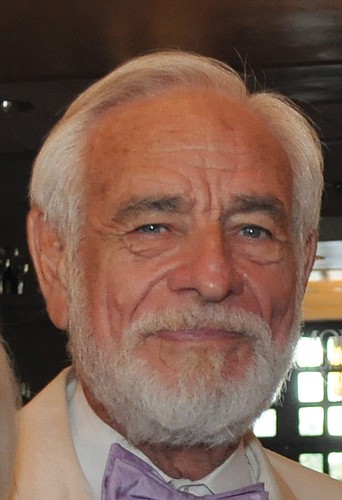- November 23, 2024
-
-
Loading

Loading

The first thing to be said is we need a system balancing local desires with experienced and skilled management.
So here goes: In 1948, I was assigned as a New Haven Register reporter to cover the New Haven city government beat. Heading the planning department was Charles Downes, a student and disciple of Edward Logue, leading American pioneer of city-manager government administration.
Ideally, a municipal city manager is chosen by merit from his performance in his previous positions. He/she is specialized in the field of managing the ship of municipal government.
A good city is a successful combination of trained and supervised staff headed by a driving, experienced director similar to that of the director of a concert orchestra.
And for whom does this director work? Ideally, the elected city commissioners. They hire him; they evaluate his experienced activity. Together they conceive the general picture and direction and depend on the city manager to lead his team to plan for the detailed execution of the continuing endeavor.
If the individual commissioners enter the daily activity, chaos emerges. The city manager will be measured by his ability to deflect the danger to the chain of command. Likewise commissioners can instigate, react or delegate. They enact appropriate improvement programs through the manager.
By these criteria, Sarasota has had an unsatisfactory record for city managers.
One, who served longest, was hired to complete the sewer and water system. He remained for three more decades, but saw his position one of being the chief negative force. He felt that if a program succeeded beyond his objections, it was worthy of acceptance. Few were. Thus, few positive programs occurred in his latter career.
One specific problem new city managers will face is that of the need to play catch-up. For instance, today three elements of an 11-element plan first voiced in January 1959 remain uncompleted. Leadership and planning would have had the remainder properly planned and implemented.
Instead, we were embarrassed to see a re-run of parking meters, a failure two generations ago.
The ideal makeup a commissioner-manager form of government includes: experienced, successful, courageous, inspirational, elected citizen commissioners working with an experienced, successful, knowledgeable city manager. Each commissioner participates in a consensus — the city manager in turn develops the working plans for the successful operation of the joint plan.
Perhaps the best way to select a candidate is to find out about his most recent career. Especially important is comparing his city’s present state upon his takeover.
Details of major points of change could be elicited. This line of comment might be followed in the final interviews.
In this same line of thought, commissioners (and department heads) might be asked to prepare questions as well.
The empirical value of the commission-manager system is that a professional manager trains and masters the art of a operating a local full-time government. He subtly educates his commissioners and protects them from their errors.
Likewise, he is chief operating officer. He, too, educates, stimulates and leads all city employees. A good total service in one position is between five and 10 years.
His record is marked by how well he navigates the many agencies at the federal, state and local levels. And how he is respected by his fellow leaders, regulators and those who need his services.
The commission-manager system is a century old. It is still evolving, as are the systems and people around it. Now, as the city of Sarasota embarks on the selection of its next city manager, the electorate must speak up, organize and demand and support the best.
Gil Waters is a former Sarasota city commissioner. The new Ringling Bridge was dedicated in his honor.